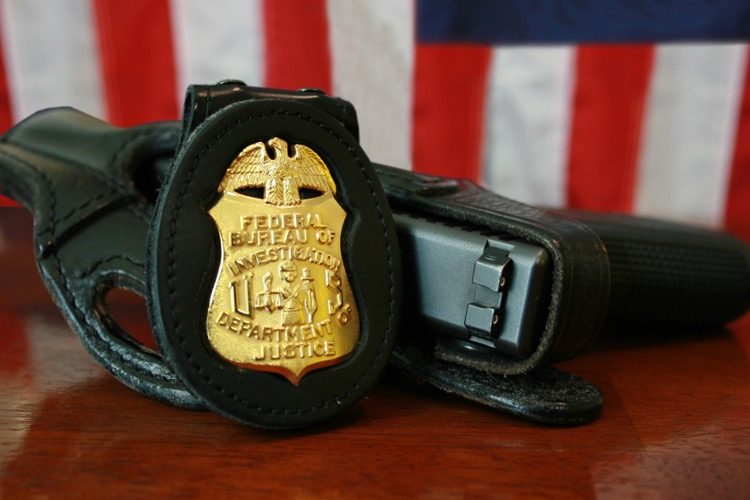
Legislation introduced in the Kentucky General Assembly would remove default “peace officer” status for most federal law-enforcement agencies in Kentucky — a major step toward protecting locally controlled police in the commonwealth.
Senate Bill 115 (S.B. 115) is sponsored by Senator Adrienne Southworth (R-Lawrenceburg). If enacted, it would amend Kentucky’s statute listing federal law-enforcement agencies which “shall be deemed peace officers and shall have the same powers and duties of any other peace officer in the Commonwealth.”
S.B. 115 would remove default state recognition for law-enforcement officers of nearly every listed federal law-enforcement agency, including the Federal Bureau of Investigation; Secret Service; U.S. Marshals Service; Drug Enforcement Administration; Bureau of Alcohol, Tobacco, Firearms and Explosives; U.S. Forest Service; Immigration and Customs Enforcement; and the National Park Service. This means officers of those agencies would not be deemed “peace officers” with “the same powers and duties of any other peace officer” in Kentucky.
Under the bill, only the U.S. Mint Police of the Department of the Treasury would retain default state recognition.
In a statement, Senator Southworth wrote, “If Federal law enforcement wants to operate in KY, they need respect KY jurisdiction and go through state and local law enforcement. SB 115 would remove default peace officer status for Federal law enforcement agencies.”
As The New American has previously reported, legislation protecting local control over law enforcement had also been introduced in Arizona and Montana, among other states.
S.B. 115 is important for several reasons. First, most of the affected federal agencies are unconstitutional. Article VI of the Constitution requires all “Laws of the United States” to be “made in Pursuance” of the Constitution in order to be considered “the supreme Law of the Land.” Article I, Section 8 does not grant the federal government any authority over law-enforcement matters, and as reinforced by the 10th Amendment, such matters are reserved to the states and the people.
Accordingly, any federal involvement in local law enforcement is not “in Pursuance” of the Constitution — and state and local officials have a duty to enforce the Constitution by nullifying such involvement and refusing to recognize unconstitutional federal agencies.
Second, local police are under attack, and there is an effort to gradually federalize law enforcement in the United States. S.B. 115 would help ensure that law enforcement remains locally controlled and operated.
Locally controlled police are integral to a free society. When local control is diluted, accountability to local voters is also diluted, and big-government power is increased. Federal involvement in local police is dangerous; it makes the latter dependent on the former, thus allowing the federal government to insidiously take over local police departments. This is a major step toward federalized police.
Local police and county sheriffs are key to protecting citizens against tyranny — they were at the forefront of nullifying state and federal Covid/vaccine mandates, and they also have protected against state and federal gun-control measures. In countries with federalized police — such as Canada, China, and the socialist-run European countries — nothing is stopping the central government from violating people’s God-given rights.
National police are the hallmark of dictatorships and oppression around the world. The autonomy of our local police is paramount to the survival of our Republic. Kentucky legislators would be wise to support S.B. 115 and other legislation to preserve the autonomy of local police.
Kentucky residents can contact their legislators in support of S.B. 115 by visiting The John Birch Society’s legislative alert here. Everyone can take action to defend locally controlled law enforcement by visiting JBS’s action project page here.



